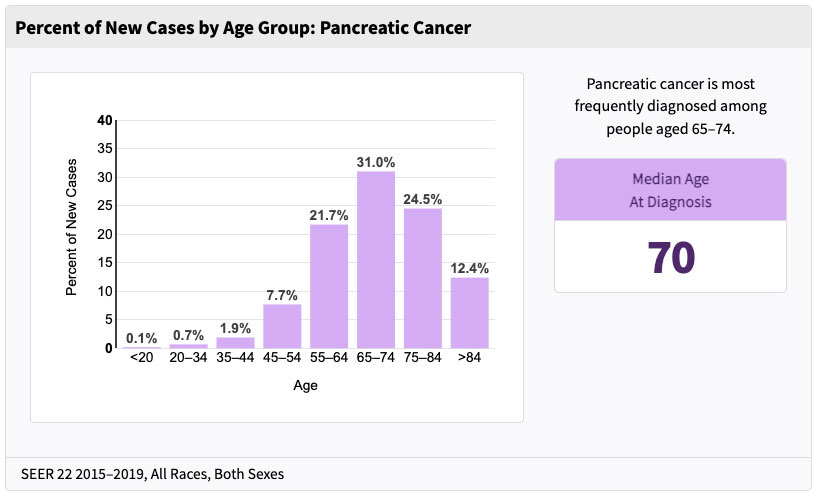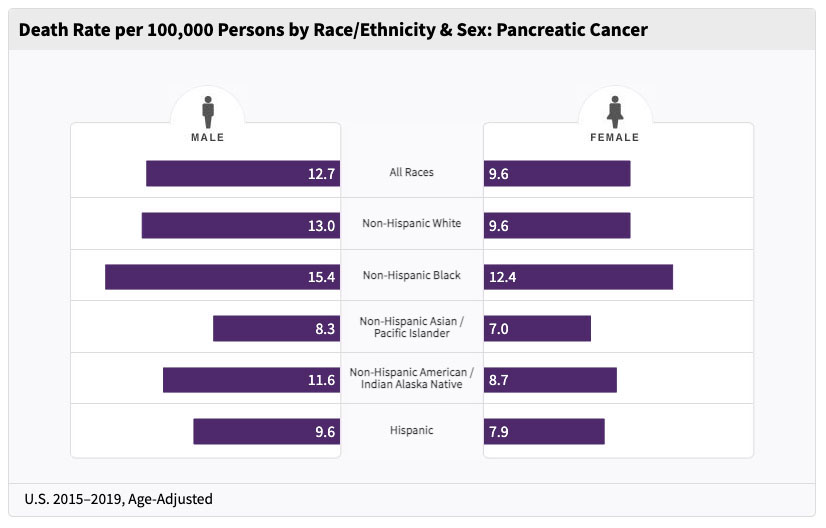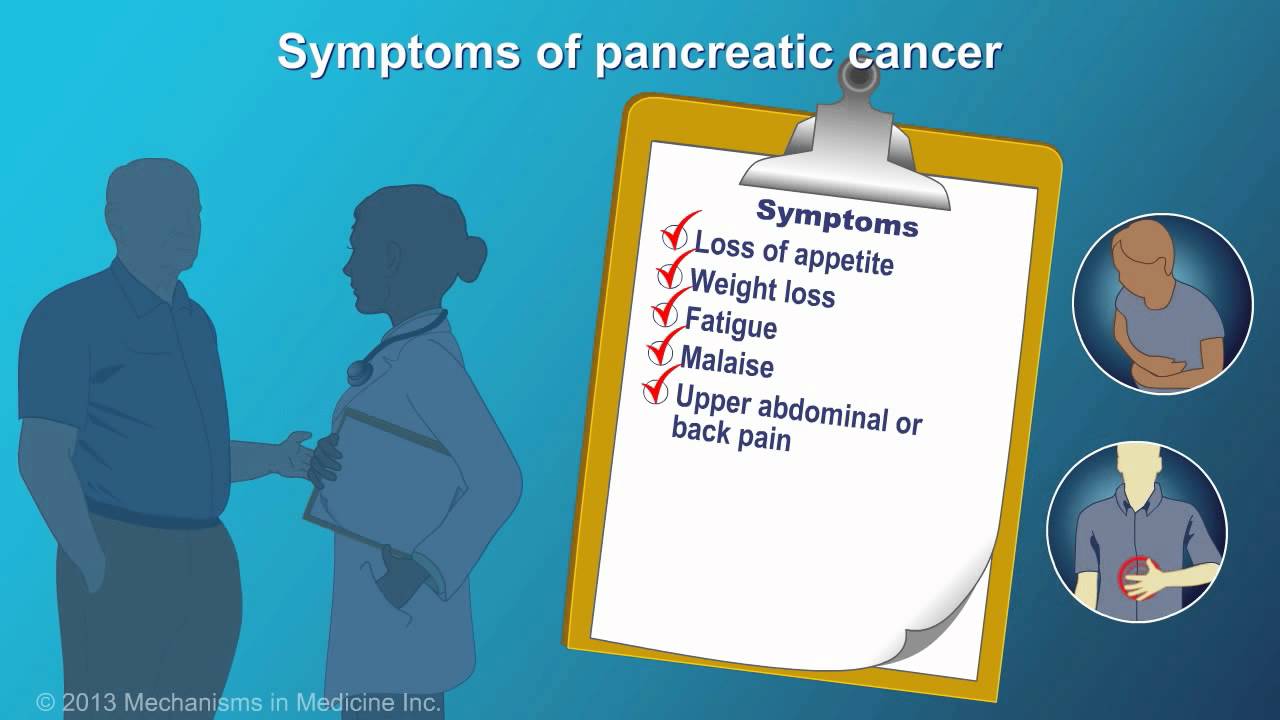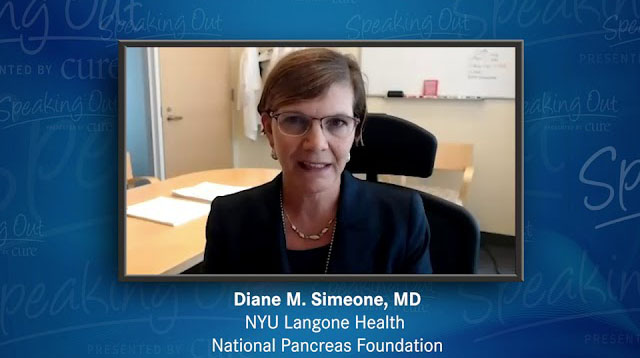Risk Factors Which Can Cause Pancreatic Cancer
On This Page: Risk Factors of Pancreatic Cancer
- Risk Factors You Can’t Control:
What Are The Pancreatic Cancer Risk Factors?
A pancreatic cancer risk factor is any factor that would increase the chance of getting pancreatic cancer.
Having a pancreatic cancer risk factor or even multiple risk factors does not mean a person would ever develop pancreatic cancer. In the reverse, the absence of any known risk factor does not mean a person would avoid getting pancreatic cancer over his or her lifetime. Having known risk factors would only indicate that the chances of developing pancreatic cancer would be increased.
We can conclude that the more pancreatic cancer risk factors one has, the greater the chance that person will contract pancreatic cancer during his or her lifetime and if they don’t get pancreatic cancer they can consider themselves very fortunate. The average lifetime risk of getting pancreatic cancer is 1 in 64 in the USA according to its National Cancer Institute.
Can You Prevent Getting Pancreatic Cancer? No you can’t. But you can minimize your risk by modifying the pancreas cancer risk factors you can control and being extremely vigilant of the symptoms and signs of pancreatic cancer to catch the disease as early as possible when it is most treatable.
Pancreatic Cancer Risk Factors That Are Modifiable Within Your Control
1. SMOKING AND TOBACCO USE
Most clinical studies conclude that smoking cigarettes is the top risk factor of pancreatic cancer. The risk of getting pancreatic cancer is about twice as high among smokers compared to the those that have never smoked. Cigarette smoking releases carcinogenic chemicals into the bloodstream that damages the pancreas. Although to a lesser extent, smokeless tobacco and cigar tobacco will also increase risk. If you smoke, then quit. If you don’t smoke, don’t start.
2. NEW ONSET TYPE 2 DIABETES
Members of the medical community differ on various opinions on the link between Type 2 diabetes and pancreatic cancer. Most agree there is a link, but to differing degrees. However, most do agree that Type 2 diabetes can be both a symptom and a cause of pancreatic cancer which would classify it as a significant risk factor for pancreatic cancer.
The degree of risk as determined by various studies can be confusing. This study is an example. For patients with new onset diabetes who are older than 50 years of age only have a 1% chance of developing pancreatic cancer. Although that statistic would appear to be a very minor risk but at the same it is still “eight times greater than that of the general population”.
Type diabetes is preventable with a healthy diet and a regimen of regular physical activity. Discuss diabetes with your doctor and consider an A1C blood test to determine if you are within a range of prediabetes because type 2 diabetes cannot be cured. It can only be controlled.
3. OBESITY AND BEING OVERWEIGHT
According to the American Cancer Society people who are significantly overweight to the extent of being described as obese are those with a ‘Body Mass Index” of 30 or more. They are about 20% more likely to develop pancreatic cancer. Adults that are gaining weight will also have increased risk. Carrying additional weight around the waistline who are not necessarily generally overweight could have an increased risk factor of developing pancreatic cancer. Check your body mass index with this calculator.
Obesity can result in “double jeopardy”of being pancreatic cancer risk factor. According to the Cleveland Clinic, if you are classified as being obese, you would be about six (6) times more likely to develop Type 2 Diabetes versus those at with a healthy “body mass index range under 25”. That does not mean that all obese people will automatically get Type 2 diabetes because other factors would play a role. What it does show is that both Obesity and Type 2 Diabetes are both linked to each other but both are individually linked to pancreatic cancer.
4. HEAVY ABUSE OF ALCOHOL
Heavy abuse of alcohol unto itself may not be a specific, direct risk factor of pancreas cancer. However, heavy abuse of alcohol is a cause of chronic pancreatitis which in turn can be a cause and risk factor of pancreatic cancer. Many studies only show that a light to moderate use of alcohol is a very small risk of pancreatic cancer versus heavy abuse of alcohol. Perhaps the best overall conclusion is not to abuse alcohol for many reasons beyond its risk of getting pancreatic cancer.
5. LACK OF VIGILANCE TO VAGUE OR OBVIOUS SYMPTOMS OF PANCREATIC CANCER
We consider not being vigilant of the signs and symptoms to be a modifiable risk factor within your control. The early symptoms and warning signs of pancreatic cancer are very vague and similar to less serious medical conditions such as acid reflux. Early symptoms of pancreatic cancer are often not noticeable at all until the cancer has already spread beyond the pancreas when it is progressively more difficult to treat.
Become your own best healthcare advocate and be very vigilant. Know your family history of any cancers and make sure your family doctor is aware of that history. Cancers are caused by gene mutations and many of the possible gene mutations could have links to pancreatic cancer. If there is a family history of cancer, consider genetic counseling and genetic testing to make sure you are not a carrier of specific gene mutations that could predispose you to pancreatic cancer or any other type of cancer.
6. INDUSTRIAL CHEMICAL EXPOSURE
Exposure to certain industrial chemicals may be a pancreatic cancer risk factor. Included are certain dyes, pesticides, petrochemicals, metal working chemicals and dry cleaning chemicals.
Risk Factors of Pancreatic Cancer That Are Not Modifiable Within Your Control
1. AGE FACTORS
According to the National Cancer Institute, the Median Age at Diagnosis of Pancreatic Cancer is 70. The Lowest Range at Diagnosis is below age 44. The Most Frequent Age at Diagnosis is 65 to 74. The “de-escalation of incidence rate; after the age of 74 could be because it takes about about 7 years for the very first cancer cell to develop and another 10 years for the cancer cells to multiply into the millions to create a detectable tumor verses the average lifespan of 78 years-old.

2. GENDER AND RACE
The incidence rate of pancreatic cancer occurs more frequently among males versus females. According to the American Cancer Society in 2022 it projected about 32,970 men and 29,240 women are estimated to be diagnosed with pancreatic cancer. This could be because of higher tobacco use by men versus women. According to the National Cancer Institute the following chart also shows the incidence rate per 100.000 persons per race. The differences in those incidence rates could be several factors including the following:
• Degree of smoking and tobacco use.
• Cultural diet.
• Incidence rate of diabetes.
• Frequency of physical activity
• Rate and degree of obesity (Body Mass Index of 30 and above)
• Degree of socioeconomic factors
* Please note that some of the above factors could in fact include risks that are modifiable by the respective persons.

3. FAMILY HISTORY OF CANCER AND HEREDITARY GENETIC PREDISPOSITION TO PANCREATIC CANCER
Cancers are caused by genetic mutations. Some genetic mutations are specific to certain cancers. Some inherited gene mutations are associated with an increased risk of multiple types of cancer. Inheriting gene mutations can predispose a person of getting a cancer including pancreatic cancer. The American Cancer Society believes that certain inherited gene mutations associated with pancreatic cancer can be associated with up to 10% of pancreatic cancer incidence rates.
Video: Genomic Risk Factors of Pancreatic Cancer. Hereditary Gene Mutation Risks.


